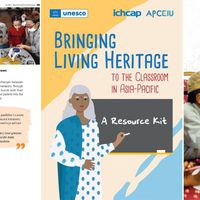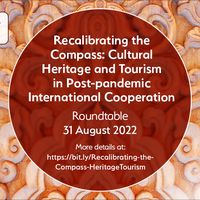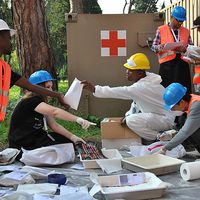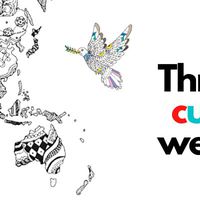UNESCO Survey on Living Heritage and Schools in Asia-Pacific
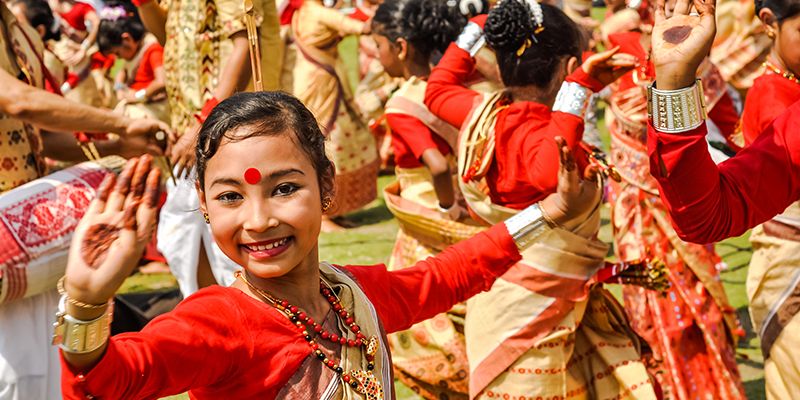 Across Asia and the Pacific, many schools and teachers link their teaching to living heritage to make the learning more connected to students’ reality.
Living heritage includes cultural practices and knowledge that are meaningful to the communities, are a part of their identity and which they want to continue to transmit to future generations. Music and dances, festivals and rituals, making of handicrafts or agricultural knowledge – they are just several forms of living heritage. Living heritage is everywhere around us.
There are many ways to use living heritage in schools:
Across Asia and the Pacific, many schools and teachers link their teaching to living heritage to make the learning more connected to students’ reality.
Living heritage includes cultural practices and knowledge that are meaningful to the communities, are a part of their identity and which they want to continue to transmit to future generations. Music and dances, festivals and rituals, making of handicrafts or agricultural knowledge – they are just several forms of living heritage. Living heritage is everywhere around us.
There are many ways to use living heritage in schools:
- Living heritage can be taught as a subject: for example, students learn traditional music, local dances or embroidery.
- It can also be used to help the learning process. For example, students study local weaving to practice a geometry exercise or learn sciences by studying their local environment.
- It can be used as part of the extra-curricular activities, in projects or in many other creative manners.
Similar content
posted on
30 Jan 2023
01 Sep 2015 - 01 Oct 2015
from - to
30 Mar 2015 - 24 Apr 2015
posted on
29 Apr 2020

